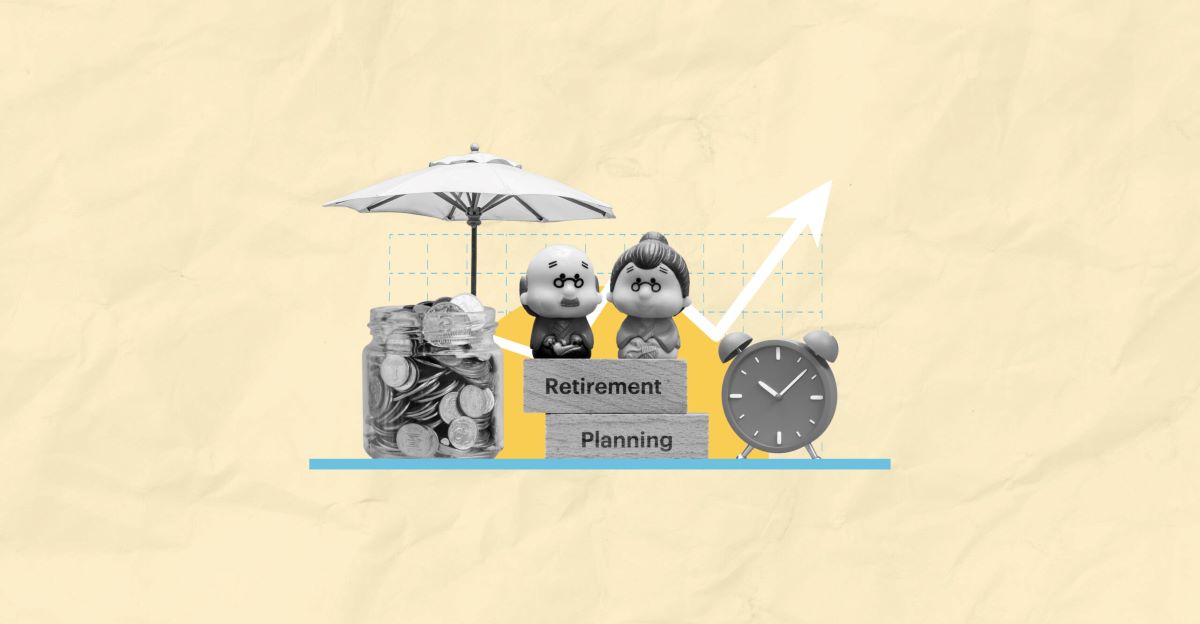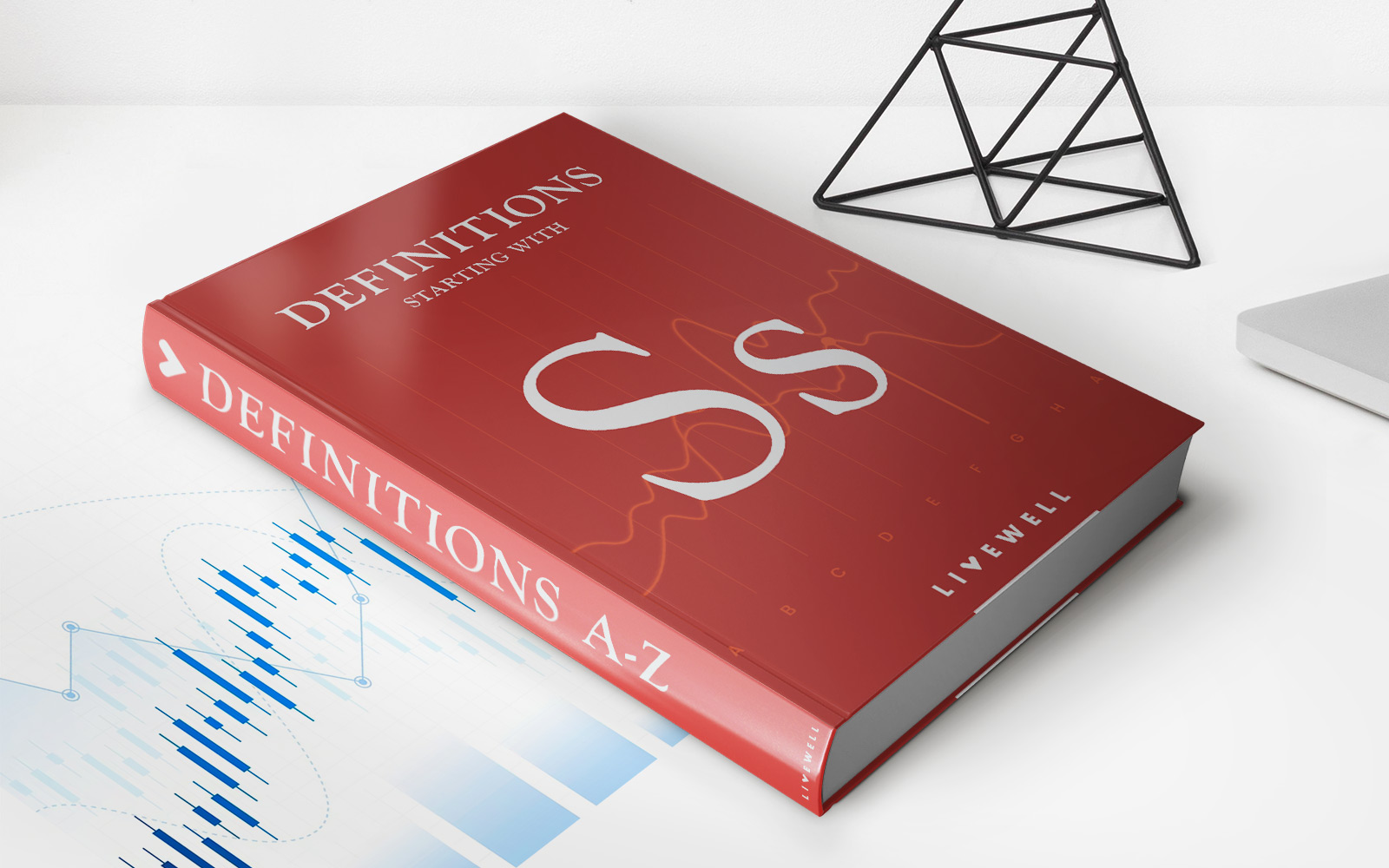

Finance
What Is The Best Retirement Planning Book
Published: January 21, 2024
Looking for the best retirement planning book? Discover expert finance tips and strategies in our recommended guide to secure your financial future.
(Many of the links in this article redirect to a specific reviewed product. Your purchase of these products through affiliate links helps to generate commission for LiveWell, at no extra cost. Learn more)
Table of Contents
- Introduction
- Importance of Retirement Planning
- Factors to Consider Before Choosing a Retirement Planning Book
- Top Retirement Planning Books
- “The Simple Path to Wealth” by JL Collins
- “Retirement Planning for Dummies” by Matthew Krantz
- “The Total Money Makeover” by Dave Ramsey
- “How to Retire Happy, Wild, and Free” by Ernie J. Zelinski
- “Your Money or Your Life” by Vicki Robin and Joe Dominguez
- Conclusion
Introduction
Retirement planning is a crucial aspect of financial management that is often overlooked by individuals. It involves setting financial goals, creating a budget, and making investment decisions to ensure a comfortable and secure retirement. However, navigating through the complex world of retirement planning can be overwhelming without the right guidance.
That’s where retirement planning books come into play. A comprehensive and well-written retirement planning book can provide valuable insights, expert advice, and step-by-step strategies to help you chart a path towards a financially stable retirement. Whether you are a young professional just starting your career or someone approaching retirement age, there is a retirement planning book that can offer guidance tailored to your specific needs.
Choosing the best retirement planning book can be a daunting task, given the plethora of options available in the market. It is important to select a book that not only explains the fundamental concepts of retirement planning but also resonates with your personal financial goals and objectives. Factors such as the author’s expertise, writing style, and the book’s overall approach are crucial in determining its effectiveness in helping you achieve your retirement goals.
In this article, we will explore some of the top retirement planning books that have received rave reviews from experts and readers alike. These books cover a wide range of topics including investment strategies, tax planning, healthcare expenses, and maximizing social security benefits. So, let’s dive in and discover the best retirement planning books that can guide you towards a financially secure and fulfilling retirement.
Importance of Retirement Planning
Retirement planning is of paramount importance for individuals at every stage of their life. Whether you are just starting your career or nearing retirement age, having a well-thought-out retirement plan is crucial for your financial security and peace of mind in your golden years. Here is why retirement planning is so important:
1. Financial Security:
Retirement planning provides you with the opportunity to build a solid financial foundation for your future. By creating a budget, saving diligently, and making wise investment decisions, you can accumulate the necessary funds to support your lifestyle during retirement. Without a proper plan in place, you risk facing financial hardships and may have to rely solely on social security benefits or other government programs.
2. Lifestyle Maintenance:
Retirement planning allows you to maintain your desired lifestyle even after leaving the workforce. By accurately estimating your post-retirement expenses and factoring in inflation, healthcare costs, and other unforeseen expenses, you can ensure that you have enough savings to sustain your preferred standard of living. This includes having the funds to pursue hobbies, travel, and enjoy leisure activities without financial constraints.
3. Independence and Autonomy:
Proper retirement planning gives you the freedom and independence to make choices that align with your personal goals and aspirations. You can retire on your terms and have the flexibility to decide when to stop working, how you spend your time, and where you live. Financial independence allows you to have control over your future and make informed decisions that bring you joy and fulfillment.
4. Medical Expenses:
Retirement often comes with increased healthcare needs and expenses. By including provisions for medical costs in your retirement planning, you can protect yourself from the financial burden of unexpected medical emergencies and long-term care. This may involve purchasing health insurance, considering long-term care insurance, or setting aside funds specifically for medical expenses.
5. Legacy and Wealth Preservation:
Retirement planning provides an opportunity to preserve and transfer your wealth to future generations. By implementing estate planning strategies, such as creating a will and establishing trusts, you can ensure that your assets are distributed according to your wishes. This allows you to leave a lasting legacy for your loved ones and support the causes you care about.
In summary, retirement planning is not just about saving money for the future; it is about creating a comprehensive strategy to achieve financial security, maintain your desired lifestyle, and live a fulfilling retirement. By taking the time to plan and make informed decisions, you can set yourself up for a comfortable and worry-free retirement.
Factors to Consider Before Choosing a Retirement Planning Book
With a plethora of retirement planning books available in the market, it’s essential to consider certain factors before selecting one that aligns with your needs and preferences. Here are some key factors to consider:
1. Author’s Expertise and Credibility:
Take a close look at the author’s credentials and experience in the field of retirement planning. Are they a financial expert, certified planner, or industry professional? Ensure that the author has a strong track record and the necessary expertise to provide reliable and accurate information.
2. Writing Style and Clarity:
The book’s writing style should be easy to understand and accessible to readers of all financial backgrounds. Look for books that use clear language, avoid excessive jargon, and present information in a concise and engaging manner. A well-written book will make complex retirement planning concepts more understandable and relatable.
3. Comprehensive Coverage:
A good retirement planning book should cover a wide range of topics related to retirement, including investment strategies, tax planning, healthcare expenses, and social security benefits. Ensure that the book provides a comprehensive overview and addresses the various aspects of retirement planning to help you make well-informed decisions.
4. Applicability to Your Situation:
Consider your unique financial circumstances and goals when selecting a retirement planning book. Some books may cater to specific age groups, income levels, or retirement timelines. Choose a book that aligns with your current stage of life and provides relevant insights and strategies for your specific situation.
5. Reviews and Recommendations:
Read reviews and recommendations from trusted sources or fellow readers who have read the book. Look for positive feedback regarding the book’s effectiveness in providing practical advice, actionable tips, and valuable insights. However, keep in mind that individual preferences may vary, so consider a range of opinions before making a decision.
6. Updated Information:
Make sure the retirement planning book you choose is up-to-date and reflects current market trends, legal regulations, and potential changes in retirement planning strategies. The financial landscape is constantly evolving, so you want a book that provides relevant and timely information.
By considering these factors, you can select a retirement planning book that best fits your needs, preferences, and financial situation. Remember, the right book can serve as a valuable resource and guidebook to help you navigate the complex world of retirement planning and set you on the path to a secure and fulfilling retirement.
Top Retirement Planning Books
When it comes to retirement planning, there are several books that stand out for their comprehensive insights, practical advice, and valuable strategies. Here are some of the top retirement planning books that can help you navigate the complexities of retirement and achieve your financial goals:
1. “The Simple Path to Wealth” by JL Collins
This book by JL Collins offers a straightforward and no-nonsense approach to retirement planning. It emphasizes the importance of low-cost index fund investing and provides valuable insights on how to build wealth and achieve financial independence. Collins’s writing style is engaging and relatable, making complex financial concepts easy to understand.
2. “Retirement Planning for Dummies” by Matthew Krantz
If you’re new to retirement planning and looking for a comprehensive guide, this book is an excellent resource. Krantz covers all the essentials, from creating a retirement budget and maximizing Social Security benefits to managing healthcare expenses and estate planning. It’s a user-friendly book that breaks down complex topics into manageable and actionable steps.
3. “The Total Money Makeover” by Dave Ramsey
Although not solely focused on retirement planning, this book by Dave Ramsey offers a comprehensive approach to overall financial management. It provides practical steps to eliminate debt, save for retirement, and build wealth. Ramsey’s straightforward and motivational style helps readers take control of their finances and make informed decisions for a secure retirement.
4. “How to Retire Happy, Wild, and Free” by Ernie J. Zelinski
This unconventional retirement planning book by Ernie J. Zelinski offers a unique perspective on retirement. It focuses on achieving happiness and fulfillment during retirement rather than solely concentrating on financial aspects. Zelinski explores various lifestyle options and provides practical tips on how to make the most of your retirement years.
5. “Your Money or Your Life” by Vicki Robin and Joe Dominguez
This classic book takes a holistic approach to retirement planning by emphasizing the relationship between money and life satisfaction. It offers a nine-step program to transform your relationship with money, enabling you to achieve financial independence and align your values with your spending habits. The book provides valuable insights for those seeking a more meaningful and financially secure retirement.
Keep in mind that everyone’s retirement needs and preferences differ, so it’s essential to choose a book that resonates with your personal goals and financial situation. These top retirement planning books provide a solid foundation of knowledge and practical advice to help you make informed decisions and chart a path towards a financially secure retirement.
“The Simple Path to Wealth” by JL Collins
“The Simple Path to Wealth” by JL Collins is a highly recommended retirement planning book that offers a refreshing and straightforward approach to financial independence. Collins focuses on the concept of low-cost index fund investing as the key to building wealth and achieving financial security in retirement. Here’s why this book is worth considering:
First and foremost, JL Collins’s writing style is engaging and accessible, making complex investment concepts easy to understand for readers of all backgrounds. He uses relatable anecdotes and real-life examples to illustrate his points, making the book a pleasure to read.
Collins’s core philosophy revolves around investing in low-cost index funds, particularly Vanguard’s VTSAX (Vanguard Total Stock Market Index Fund). He believes that this passive investing approach offers the best chance for long-term success, as it provides broad diversification and historically strong returns.
Moreover, “The Simple Path to Wealth” goes beyond investment advice and delves into important topics such as understanding market volatility, the role of bonds in a portfolio, and the impact of fees on investment returns. Collins also emphasizes the importance of developing a long-term mindset and staying the course, even during turbulent market conditions.
In addition, the book offers practical advice on retirement savings, including strategies to optimize contributions to tax-advantaged accounts like 401(k)s and Individual Retirement Accounts (IRAs). Collins provides insights on how to make the most of employer matching contributions and the benefits of tax-efficient investing.
“The Simple Path to Wealth” also touches on the importance of financial independence and achieving freedom from the pressures of traditional employment. Collins introduces the concept of F-You Money, which refers to having enough savings and investments to have the freedom to make choices without being driven solely by financial considerations.
Overall, “The Simple Path to Wealth” is a comprehensive guide to retirement planning that combines investment wisdom, practical advice, and a wealth of knowledge to help readers secure their financial future. Collins’s emphasis on simplicity and long-term investing strategies resonates with both novice investors and seasoned professionals.
Whether you are just starting your career or are already on the path to retirement, “The Simple Path to Wealth” serves as an excellent resource to help you understand the fundamentals of investing, create a solid retirement plan, and attain financial independence.
“Retirement Planning for Dummies” by Matthew Krantz
“Retirement Planning for Dummies” by Matthew Krantz is a comprehensive guide designed to help individuals navigate the complex world of retirement planning with ease. Geared towards both beginners and those looking to enhance their retirement strategies, this book offers practical advice and valuable insights for achieving a financially secure retirement. Here’s why “Retirement Planning for Dummies” is worth considering:
One of the key strengths of this book is its user-friendly approach. Krantz breaks down complex retirement planning concepts into simple, digestible terms, making them accessible to readers of all financial backgrounds. The book’s step-by-step format guides individuals through the retirement planning process, starting from defining retirement goals and assessing financial readiness, all the way to implementing investment strategies and estimating retirement income.
“Retirement Planning for Dummies” covers a wide range of important topics, including creating a retirement budget, understanding different types of retirement accounts (such as 401(k)s, IRAs, and Roth IRAs), maximizing Social Security benefits, and managing healthcare expenses. It also offers insights into tax planning strategies to optimize retirement savings and minimize tax liabilities.
What sets this book apart is its emphasis on a holistic approach to retirement planning. It not only focuses on financial aspects but also explores lifestyle considerations, such as finding purpose and fulfillment in retirement, staying active and healthy, and planning for long-term care. This well-rounded perspective helps readers envision a well-balanced and fulfilling retirement beyond just financial security.
Additionally, “Retirement Planning for Dummies” includes real-life case studies and examples, providing practical scenarios that readers can relate to. These examples, combined with Krantz’s clear explanations, allow readers to apply the concepts learned to their own unique situations.
Furthermore, the book’s updated editions reflect current market trends, regulations, and changes in retirement planning strategies. This ensures that readers have access to the most up-to-date and relevant information to make informed decisions about their retirement plans.
With its comprehensive coverage, approachable style, and practical advice, “Retirement Planning for Dummies” serves as an excellent resource for individuals at any stage of their retirement planning journey. Whether you are just beginning to explore retirement options or want to refine your existing strategies, this book provides valuable insights and guidance to help you achieve a financially secure and fulfilling retirement.
“The Total Money Makeover” by Dave Ramsey
“The Total Money Makeover” by Dave Ramsey is a renowned retirement planning book that offers a comprehensive approach to overall financial management. While not solely focused on retirement, this book provides practical steps and strategies that can significantly impact your retirement savings and overall financial well-being. Here’s why “The Total Money Makeover” is worth considering:
Dave Ramsey’s straightforward and motivational style resonates with readers seeking a step-by-step plan to achieve financial independence. The book outlines Ramsey’s seven “Baby Steps” to building wealth and attaining financial freedom, which are applicable to individuals at any stage of their financial journey.
The book emphasizes the importance of eliminating debt and building an emergency fund as the initial steps towards securing a strong financial foundation. Ramsey’s Debt Snowball method provides a clear roadmap for paying off debts strategically, which can free up more funds for retirement savings in the long run.
One of the key strengths of “The Total Money Makeover” is its focus on changing one’s mindset towards money. Ramsey challenges readers to adopt a disciplined approach to spending, budgeting, and saving, which can have a profound impact on retirement planning. By making intentional choices and prioritizing long-term goals, readers can align their financial habits with their retirement objectives.
The book offers practical advice on retirement savings, including how much to save, where to invest, and how to maximize employer-sponsored retirement accounts. Ramsey provides insights on different investment options and encourages readers to seek professional advice to make informed decisions. He also educates readers on the power of compound interest and the benefits of starting early in their retirement savings journey.
In addition to retirement savings, “The Total Money Makeover” also addresses other crucial financial aspects such as insurance coverage, estate planning, and giving back. These topics contribute to a well-rounded financial plan that ensures not only a comfortable retirement but also protection and support for future generations.
While the book’s principles are powerful, it’s important to note that Dave Ramsey’s approach may not align with everyone’s personal preferences or financial situation. However, “The Total Money Makeover” still provides thought-provoking insights and actionable advice that can significantly impact your retirement planning efforts.
Overall, “The Total Money Makeover” offers a comprehensive and motivational guide to achieving financial freedom and making sound retirement decisions. By implementing the strategies and principles outlined in the book, readers can take control of their finances, reduce stress, and pave the way for a secure and enjoyable retirement.
“How to Retire Happy, Wild, and Free” by Ernie J. Zelinski
“How to Retire Happy, Wild, and Free” written by Ernie J. Zelinski is a unique retirement planning book that offers a fresh and unconventional approach to retirement. Unlike traditional retirement planning books that primarily focus on financial aspects, Zelinski’s book delves into the psychological and lifestyle considerations that can make retirement truly fulfilling. Here’s why “How to Retire Happy, Wild, and Free” is worth considering:
Zelinski’s book challenges conventional wisdom about retirement and encourages readers to think outside the box. He emphasizes that retirement is not just about achieving financial security but also about living a happy, fulfilled, and adventurous life. Zelinski provides practical advice and inspiration to retirees on how to make the most of their newfound freedom and create a retirement that aligns with their passions and values.
The book explores several relevant lifestyle topics, including finding purpose and meaning in retirement, pursuing new hobbies and interests, and maintaining a healthy and active lifestyle. Zelinski encourages readers to view retirement as an opportunity to reinvent themselves, explore their passions, and embark on new adventures.
“How to Retire Happy, Wild, and Free” also touches on financial considerations, such as budgeting for retirement and making smart investment decisions. While not the primary focus of the book, Zelinski provides essential tips and strategies to ensure financial stability in retirement without overwhelming readers with complex financial jargon.
Zelinski’s writing style is engaging and motivational, making the book an enjoyable read. He infuses humor, personal anecdotes, and inspirational quotes throughout the chapters, which adds a human touch and keeps readers engaged. The book is written in a conversational tone, making it accessible to readers from all walks of life.
One of the standout features of the book is the emphasis on creating a balanced and fulfilling retirement. Zelinski highlights the importance of maintaining social connections, cultivating relationships, and giving back to the community. This holistic approach to retirement planning sets “How to Retire Happy, Wild, and Free” apart from other retirement planning books on the market.
While it may not provide in-depth financial strategies, “How to Retire Happy, Wild, and Free” offers a refreshing perspective on retirement that encourages readers to embrace their newfound freedom and live life to the fullest. It serves as a reminder that retirement is not just about financial security, but also about personal growth, fulfillment, and happiness.
If you’re looking for a retirement planning book that goes beyond financial advice and inspires you to create a retirement lifestyle that truly reflects your passions and values, “How to Retire Happy, Wild, and Free” is a book you should consider exploring.
“Your Money or Your Life” by Vicki Robin and Joe Dominguez
“Your Money or Your Life” by Vicki Robin and Joe Dominguez is a groundbreaking retirement planning book that offers a unique perspective on the relationship between money and overall life satisfaction. The book goes beyond traditional financial advice and provides readers with a framework to achieve financial independence and align their spending habits with their values. Here’s why “Your Money or Your Life” is worth considering:
The authors challenge readers to reevaluate their relationship with money and view it as a tool for achieving a fulfilling life, rather than a means of mere accumulation. They introduce the concept of “life energy,” which involves calculating the number of hours spent working to earn money and assessing whether the expenses are truly worth the time invested. This thought-provoking approach encourages readers to prioritize their values and make intentional decisions about how they allocate their resources, including retirement savings.
“Your Money or Your Life” provides a step-by-step process for individuals to examine their spending habits, track expenses, and create a realistic budget based on their values and goals. The authors emphasize the importance of conscious consumption and mindful decision-making when it comes to financial choices, including retirement planning.
This book also addresses the role of investing and passive income in building financial independence. While the focus is not solely on retirement savings, the principles discussed provide a foundation for readers to make informed decisions about generating income during retirement and achieving financial security.
Another strength of “Your Money or Your Life” is its emphasis on the relationship between money and happiness. The authors encourage readers to question the consumer-driven mindset and explore alternative ways to find fulfillment, such as pursuing meaningful experiences, personal growth, and contributing to their communities. This holistic approach to retirement planning encourages readers to consider their overall well-being and personal satisfaction in retirement.
Throughout the book, Robin and Dominguez share personal anecdotes and stories from individuals who have successfully implemented the book’s principles, adding a relatable and inspiring element to the content. These stories demonstrate the potential for transformation and encourage readers to envision and work towards a more intentional and rewarding retirement.
While “Your Money or Your Life” may not provide specific investment strategies or detailed retirement savings calculations, it offers a thought-provoking and soul-searching approach to retirement planning. The book challenges readers to reassess their values, redefine their relationship with money, and ultimately create a retirement that aligns with their true priorities and aspirations.
If you are looking for a retirement planning book that goes beyond traditional financial advice and encourages a deeper exploration of your values and life goals, “Your Money or Your Life” is a compelling choice to consider.
Conclusion
Retirement planning is a critical endeavor that requires careful consideration, strategic decision-making, and a comprehensive understanding of financial concepts. The right retirement planning book can serve as a valuable resource, offering expert advice, practical strategies, and the motivation to guide you towards a financially secure and fulfilling retirement.
In this article, we explored the importance of retirement planning and discussed the factors to consider before choosing a retirement planning book. We also highlighted five top retirement planning books that cover a range of topics, from investment strategies to lifestyle considerations.
“The Simple Path to Wealth” by JL Collins offers an uncomplicated approach to investment strategies and financial independence, while “Retirement Planning for Dummies” by Matthew Krantz provides a user-friendly guide for individuals at all stages of retirement planning.
“The Total Money Makeover” by Dave Ramsey takes a comprehensive approach to financial management and offers practical steps to eliminate debt and build wealth, ultimately contributing to a secure retirement.
“How to Retire Happy, Wild, and Free” by Ernie J. Zelinski challenges the traditional notions of retirement planning and encourages readers to find fulfillment and happiness in retirement beyond financial security.
Lastly, “Your Money or Your Life” by Vicki Robin and Joe Dominguez explores the deeper connection between money and life satisfaction, guiding readers to make conscious financial decisions and align their spending with their values.
It is important to remember that the choice of a retirement planning book should be based on your personal circumstances, preferences, and goals. Each book offers a unique perspective, and what works for one individual may not work for another. It is recommended to explore multiple books and find the ones that resonate with your own values and retirement aspirations.
Regardless of the retirement planning book you choose, remember that planning for retirement is an ongoing process. Regularly revisiting and adjusting your retirement plan based on changing circumstances and goals is crucial. Seeking professional advice from financial experts can also provide valuable insights and help ensure that your retirement plan remains on track.
With the knowledge and guidance offered by these top retirement planning books, you can embark on your retirement journey with confidence and make informed decisions that pave the way for a financially secure and fulfilling retirement.














